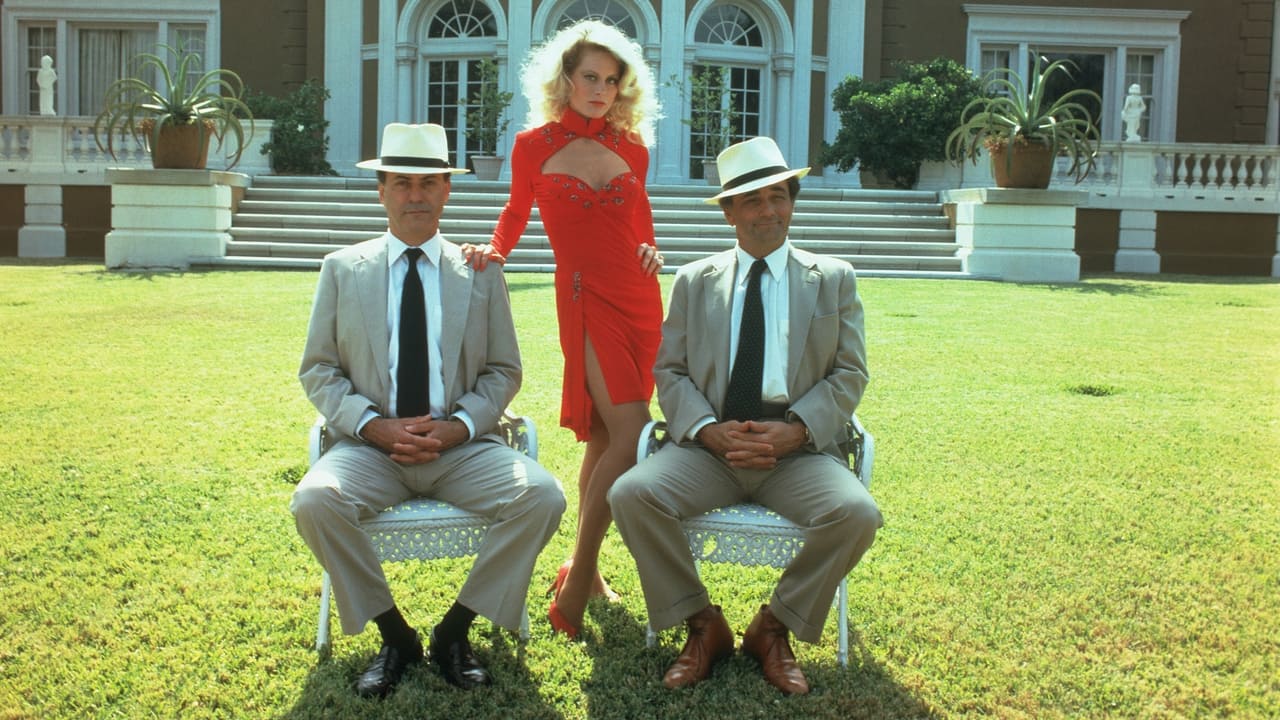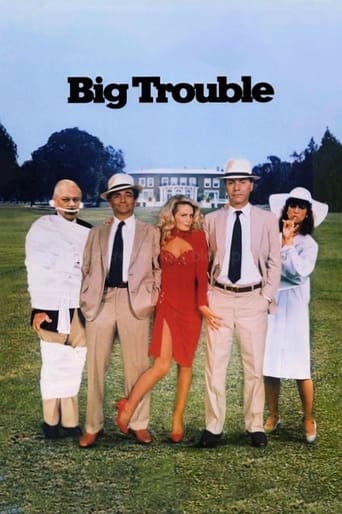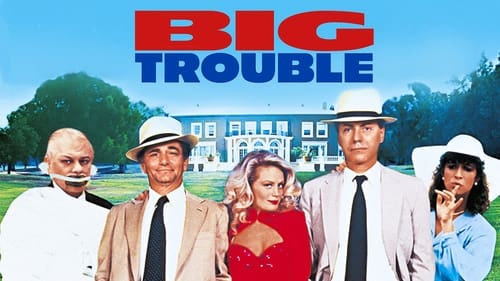ada
the leading man is my tpye
GamerTab
That was an excellent one.
Payno
I think this is a new genre that they're all sort of working their way through it and haven't got all the kinks worked out yet but it's a genre that works for me.
Scarlet
The film never slows down or bores, plunging from one harrowing sequence to the next.
SnoopyStyle
Leonard Hoffman (Alan Arkin) is an insurance agent with a suburban family. His three sons all get accepted into Yale. His boss Winslow (Robert Stack) refuses to help him with any scholarships. His work mate is the hard-nosed O'Mara (Charles Durning). He goes on a sales call to the drunken rich trophy wife Blanche Rickey (Beverly D'Angelo). She complains about her gambler husband Steve Rickey (Peter Falk). Desperate for money to pay for his kids' college, he joins Blanche to murder her husband for the life insurance.This is the last film of John Cassavetes and he apparently hated it. The plot is so close to Double Indemnity that this is basically a spoof. Of course, none of it is funny because every moment of the movie, I'm asking if this is deliberate. It's hard to tell since Double Indemnity is not watched all the time. In order for a spoof to work, the audience must know all the beats in the original and what the filmmaker is doing to satire each moment for a joke. Then the last third of the movie goes bonkers. It becomes non-sense. The actors are trying for some wacky physical comedy despite the noir story. It's frustrating to watch a movie where the jokes don't work. One can see that everybody is trying but I don't understand what the film is trying to do.
dhagenadha
l rented this movie by accident, recommending my girlfriend rent the other film entitled "Big Trouble" (2002). Well, it turned out we were lucky as Alan Arkin and Peter Falk are some of my favorite actors. The chemistry between Arkin and Falk is magical. The plot parallels some old Hollywood movies such as "Double Indemnity" in an odd fashion. I would describe it as "quirky", a throwback to the 1980's and a "must see" for all fans of Arkin, Falk, and Beverly D'Angelo, who looks fabulous in a variety of sexy outfits and carries her part with typical aplomb. Some of the scenes had me laughing so hard I had to stop the tape to recover (see Sardine Liquor). Charles Durning plays his important supporting role to perfection as well. Look for the uncredited cameo by Samuel L. Jackson near the beginning. This is a winner!
Robert J. Maxwell
Spoilers. This movie is weak mainly when measured against the standard set by "The In Laws," which sets the bar pretty high. The chief problem is that "The In Laws" follows a definite, if lunatic, narrative line. One things leads logically to the next, each more bizarre than the last, but each incident building on previous ones. "Big Trouble" doesn't have that cumulative quality in its gags. It's episodic and seems to owe too much to farces like "Airplane." Some of the gags are flat. And the writers have descended at times into a hyperactive but unfunny madness in which all the characters are shouting at once, as if that were in itself amusing.
With that out of the way, I still recommend the film. Falk and Arkin play essentially the same characters as in "The In Laws," and Richard Libertini does a reprise of his Latin-American character. There's a certain amusement quotient built into the film right there. And some of the gags are as good as anything in "The In Laws." I will give two examples. First -- the "sardine liquer" scene in which Falk's host more or less forces Arkin's guest to drink this concoction imported from Norway -- "Kipitinsk, as they call it." There are spit takes and then there are spit takes. The usual protocol would require Arkin to take a mouthful of this poison and then look around frantically for somewhere to spit it out. At the next rung upward on the ladder he might swallow it and say something in a hoarse whisper. Here he goes completely over the top and, with scarcely any expression on his face, helplessly spits the stuff out in streams, not once, but over and over again, all over his clothes and the table, like the puking fat man in Monty Python's "Meaning of Life." The second example I will mention only briefly because a complete description of the context would take too much space. A body in the morgue has been "reconstructed" by a "plastic surgeon" to resemble Falk. (Don't even ask.) The witnesses examine the body with interest. "I have a theory about this case," says Charles Durning as an insurance investigator. Arkin: "Oh, really? What theory is that?" "My theory," says Durning, "is that this b*****d is still alive." And he begins tickling the feet of the dead body which then comes to life and jumps from the table.I can't see any evidence that this is in any way what is usually thought of as a "Cassavetes" film. I just don't see his hand in it. It's clearly not improvised, and it just isn't original enough, as most sequels aren't. And I assume that there are multiple references to other films in this one and that I missed most of them. It's basically a spoof of "Double Indemnity," and an extremely funny one at times. (Arkin trying to do an impression of Falk's distinctive voice while pretending to BE him on the train. "Oh, yeah.") The first hour, which sticks closest to "Double Indemnity", the funniest part. After that the story begins to run out of steam.Judging from some of the comments, there wasn't much to expect from this film, but I was rather pleasantly surprised.
frankfob
Knowing the kind of work of which actors Alan Arkin and Peter Falk and writer Andrew Bergman are capable, the blame for this jumbled, poorly made "comedy" can only be laid at the feet of director John Cassavetes, or whoever it was who was responsible for it. Supposedly Cassavetes didn't direct most of it but was brought in to replace a director who was fired. If that's so, it's understandable why he was fired. If it's not so, then it's Cassavetes who should have been fired. While all accounts I've read about Cassavetes mention that one of his most endearing traits was his wild sense of humor, there's certainly no evidence of that in this misfire. Falk tries valiantly to breathe some life into this lumbering mess, but Arkin seems to be waiting for someone to tell him what to do--or at least to give him something funny to say. If the producers had wanted to make a sequel to the hilarious Falk/Arkin "The In-Laws," then that's what they should have done. The picture is somewhat schizophrenic--it SEEMS to be a sequel to "The In-Laws," and was advertised as such, but Arkin's and Falk's characters and situations have been changed so drastically that it's really a completely different picture.Anyway, the film is virtually a complete dud. The few gags that made it into the picture are ruined by bad timing and poor editing. In addition, much of the film makes no sense whatsoever (there were major production problems, with constant cast and crew changes, and it shows) and the movie did no good for anyone connected with it--especially the audience. While "The In-Laws" was a major hit, this thing came and went pretty much overnight. It was savaged by critics and ignored by audiences--justifiably on both counts. If you're not in the mood to see otherwise extremely talented people embarrass themselves, do yourself--and them--a favor and skip this.


